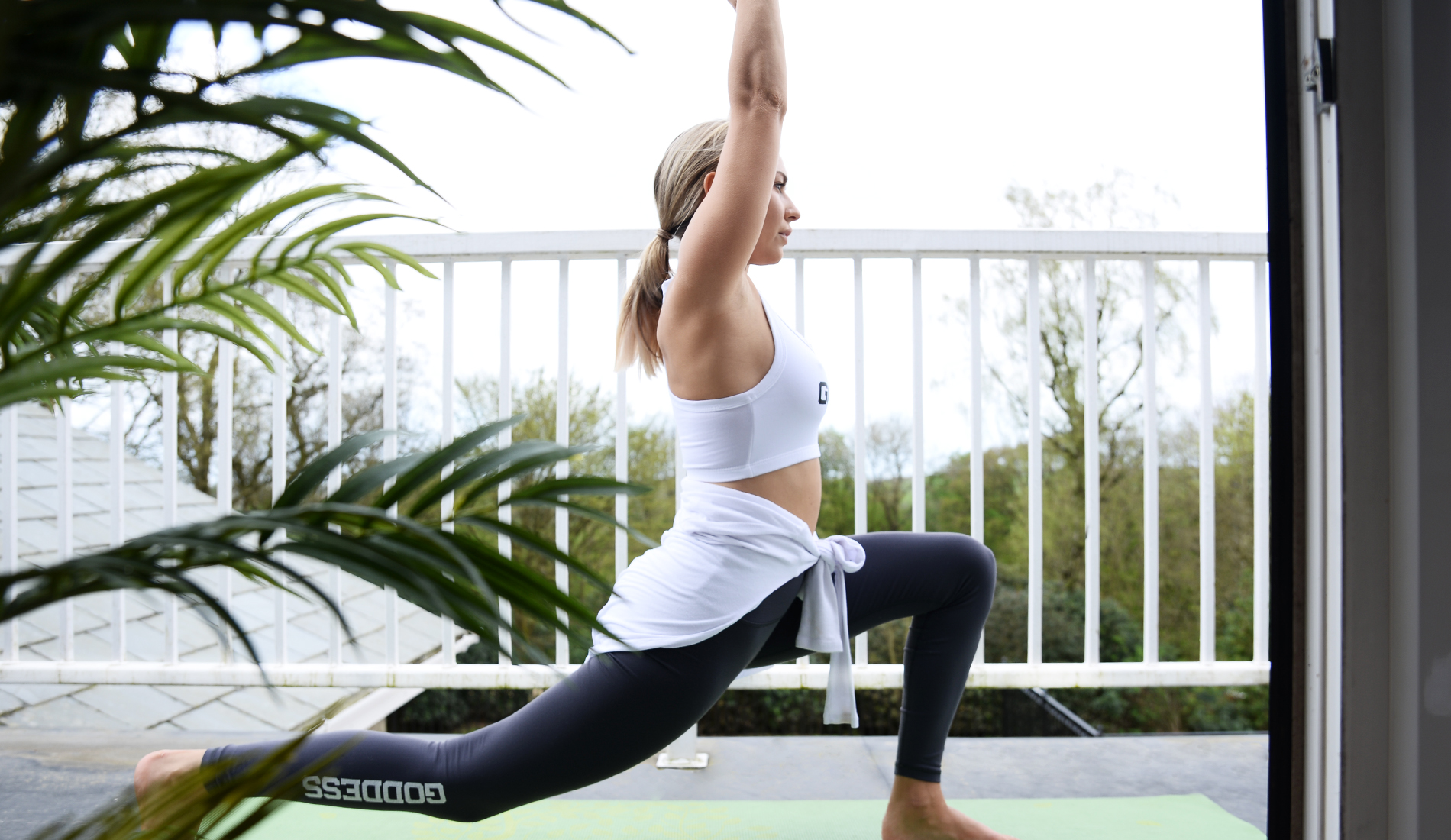When it comes to a skin condition like eczema, people often underestimate how healing really does start in your head and that mastering the mind can have a significant impact on reducing symptoms and regaining control of the condition.
By mastering the mind, I mean changing the way that you view and react to the things that happen in your life – understanding what could be at the root cause of your eczema and switching negativity into positive habits and mindsets.
Understanding the role of stress
For me, it is hugely important that people understand the major role that stress can play in a flare up. Creams can reduce and manage eczema in the short term, but managing eczema should always be about working out why your skin is flaring up in the first place and addressing that as a long-term solution.
Stress can have an adverse effect on your skin by affecting your gut flora which represents 70% of your immune system. It can also supress or increase your appetite, make you feel tired yet prevent sleep, as well as adversely affect your mood in a way that feels uncontrollable.
All of these factors can lead us towards unhealthy numbing strategies like alcohol, over-eating and long periods in front of the TV or mindless social media scrolling. We numb ourselves rather than nourish ourselves because it feels easier. But these strategies don’t get rid of stress, they blur it – and when it comes to managing eczema, they are creating habits (unhealthy diet, lack of movement and negative thoughts) which will have an adverse effect on the skin.
When we choose to nourish ourselves we take a positive step towards reducing stress which will have a wider positive impact on our health – the first step towards this is to reframe our thinking. I explain the basics of this in three steps:
Step one – Love yourself

When you’re experiencing an eczema flare up or if you’re unhappy with your skin, it is all too easy to put all of the negativity, frustration and despair that you are feeling on yourself. The first step to healing is to switch your mindset and rewire your brain to focus on the positive and not the negative and as a result being a little bit kinder on yourself. Of course when you’re in the midst of flare up, this can be easier said than done but the mind and body are linked and it has been proven that cultivating a daily habit of self-love and positivity can work wonders in switching the way you see yourself and your skin.
I am a huge believer in the power of positive affirmations – positive, present-tense statements said to yourself, about yourself every day. In fact, repetition breeds belief (also known as the illusory truth effect) and if we repeat these positive statements often enough then we will believe that they are true.
Positive affirmations such as ‘I am healed’, ‘I am well’ and ‘I am loved’ can help you carve out a positive mindset and in turn will help you respond better to whatever life throws your way, positively impacting your skin health.”
Step two – Cultivate an attitude of gratitude

Gratitude is such a powerful positive emotion and according to Heart Math Institute Studies, using ‘appreciation intervention’ can significantly boost the immune system, mood and vitality whilst decreasing stress and blood pressure.
In order to see things in a positive frame of mind, it is important to focus on what you are grateful for in your life right now, and what you hope will be good in the future (visualisation). Developing an attitude of gratitude will help you count your blessings and not focus on your flaws. It is a simple way to reprogram our natural negative wiring towards appreciation – in fact some studies have found that it has more of an impact on depression than anti-depressants.
To be more grateful we need to tune our minds into paying more attention to things, experiences, people, places, moments and memories that bring us joy. It is then important to express or record these gratitudes – I write mine down in a journal. Re-read them regularly and express thanks for the things that you are grateful for. Gratitude acts as a self-soother and self-encourager. Positive truths matter so make sure that you invest time in noticing and noting them.
Step 3 – Be more present

Mindfulness is the practice of being more present which decreases stress and anxiety, increases immune response and activates the pre-frontal cortex of our brain which helps self-regulate our emotions. Mindful meditation has also been proven to reduce pain.
Anything that helps us gets to know ourselves better, activates our calming mechanisms and boosts our immune function is a must do practice for eczema sufferers. Mindfulness can also decrease rumination (when we dwell on our thoughts and regrets) by turning our attention to the here and now. When we focus our attention on the moment and only the moment, we find an inner sense of calm. It centres us to connect our senses instead of our thoughts.
Taking the time to pause and reflect can help us find examples of other similar stressful situations that we were able to get ourselves out of or manage – helping us to remind ourselves of the times that we have risen to past challenges and that we can do so again.
There are so many mindfulness apps, books and online guides out there – I would encourage you to incorporate mindfulness into your daily self-care routine.


